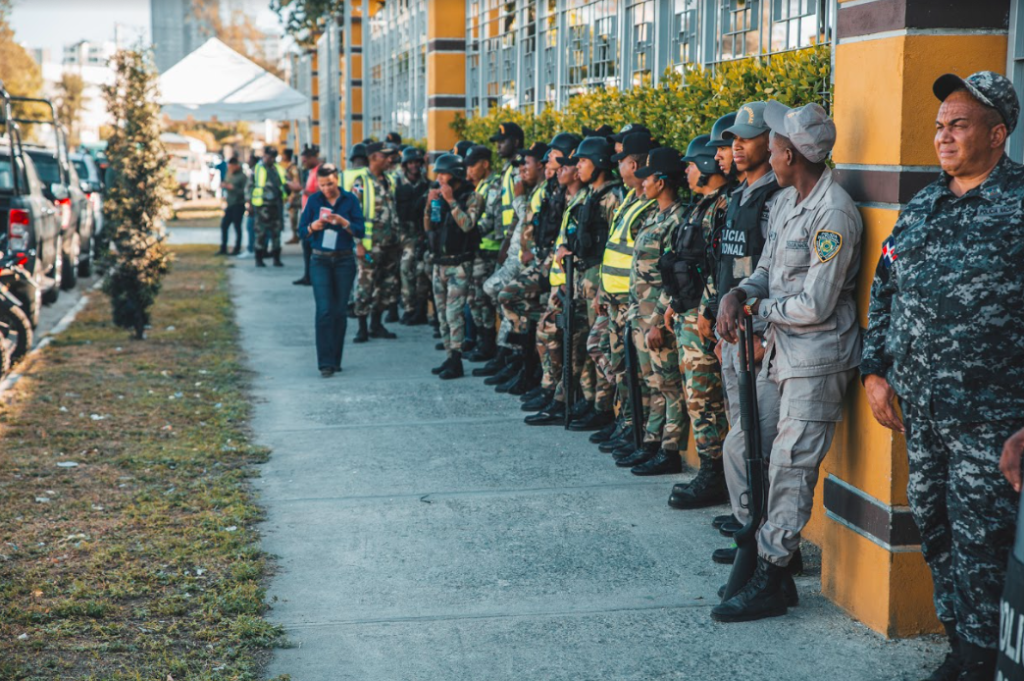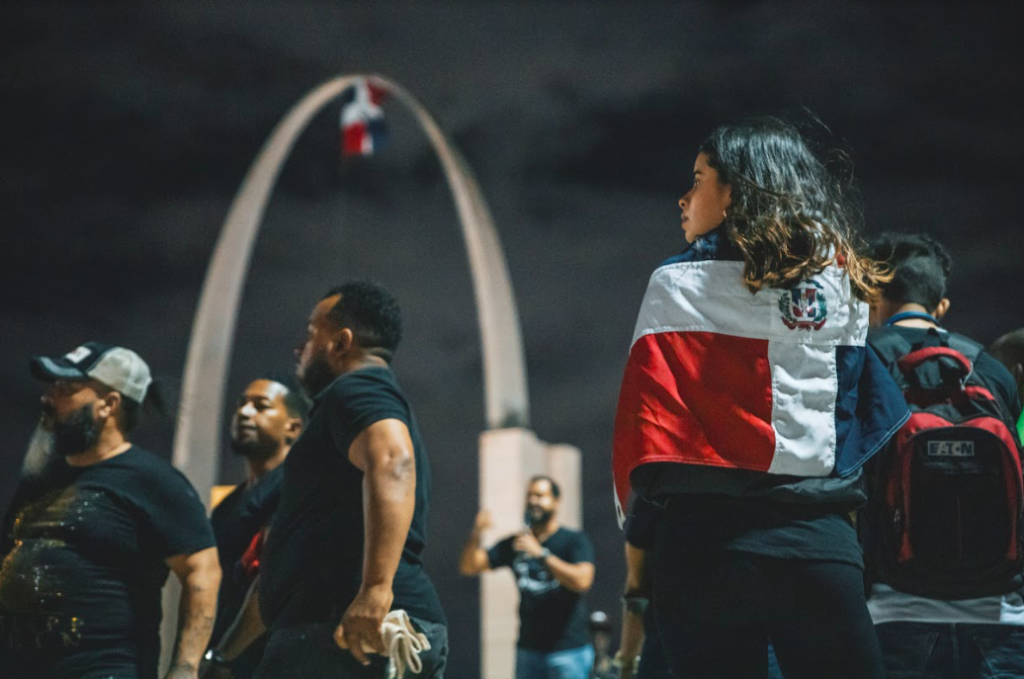Written by: Indhira Suero Acosta
Photos by: Adolfo Sesto
For those of you who are far from the Dominican Republic, what happens in the nation, — after the suspension of municipal elections on Feb. 16 — may seem somewhat distant. That it does not relate to you.
Since then, I’ve been wondering why someone from the diaspora should care about what happens here.
I have not come up with an answer.
I understand — and I know — that once you leave this country, it is easy to ignore. I don’t even think that happens with lousy intention; it’s just part of life itself. The need to make “borrón y cuenta nueva” and move forward with what is upfront.
Living abroad and holding your bond with the country is like those loves from afar, where you have to work hard at the relationship so that distance does not wear it down.

It happened to me when I was living in Florida, where I paid more attention to Hillary Clinton and Donald Trump’s confrontations than to the presidential election in my own country.
If you are wondering what is happening in the Dominican Republic, I can only tell you that things came to a boil, especially after the suspension of municipal elections.
One of my Facebook friends wrote a post that explains the current situation: “We know that waking up involves many other things and that young Dominicans of all generations have developed their changes. Some were facing the dictatorship, others defending the freedom of thought, assembly, and expression; some leading culture for the people; others throwing the lawsuit against abusive police. Others are fighting the limits imposed by a double moral society; walking five kilometers on foot to go to school; claiming a bus for the university students of the town; half a million for education. Others are claiming public services for their neighborhoods or respect to their identity; to sit in a park or transit without being treated like a criminal, thousands more working their ass off in a factory in New York.”


I am honestly not sure what will happen once the protests taking place in the nation end, and the new municipal elections, now scheduled for March 15, take place.

In a recent statement, the Dominican Episcopate Conference released a statement. The message says freedom in the DR is threatened by “drug trafficking; drug use; impunity; clientelism; poor quality in education; high teenage pregnancy rate; lack of job opportunities; poverty, as well as censorship of freedom of expression.”

I fear that everything remains the same because I have already seen the same thing happen with other issues that should concern us every day:
Women murdered by their partners or ex-partners
Corruption
Little respect for traffic rules
Deaths from driving recklessly
Police abuse
The lack of action from the entities that should worry about the good of the country.

For example, the Dominican Republic was the headquarters of the Odebrecht office that was in charge of the most significant bribe payment in recent history to dozens of countries in Latin America.
So far, no one is in jail for that case. A newspaper article revealed that “two billion dollars is the value of the additions to the contracts that Odebrecht had in the Dominican Republic,” during four different national governments.

Nor is it known whether the authorities investigated the results of reports led by the International Consortium of Investigative Journalists. A series of articles revealing “more than $39 million in secret Odebrecht payments made in connection with the Dominican Republic’s giant Punta Catalina coal-fired power plant.”

It is not known what will happen with the case of journalist Marino Zapete, accused of defamation. He alleged that “Maybeth Rodríguez, sister of Attorney General Jean Rodríguez Sánchez, had illicitly profited from public infrastructure projects.”
He also accused Gonzalo Castillo, presidential candidate for the Partido de la Liberación Dominicana (PLD), for being “involved in the case.”

Also on Feb. 20 — in a country agitated by protests and great distrust — President Danilo Medina enacted Law 46-20 on Transparency and Patrimonial Revaluation, which “allows to transparent assets that have not been declared before and revalue them by current market prices.”
According to experts in the field, this law represents a “gap for the legalization of fortunes from corruption or other illicit sources.”
At the same time, a group of prosecutors accused the Attorney General of the Republic, Jean Alain Rodríguez, of retroceding the Public Prosecutor’s Office at least 18 years, since he began his tenure in 2016. They declared that “he has put all departments to his political service, including political units that from within the state entity sponsor the candidacy of Gonzalo Castillo.”

The same
I care about young people too, and how they will act after these days of protests in the Plaza de la Bandera.
The words of a former student of mine summarize the thinking of many young people. He wrote this on his blog:
“I have three days breaking my head to be able to find coherence in how I should feel. I am completely disgusted by the PLD. It is the only party I have seen in power. I do not feel that they represent my interests as a young person; I feel that the country is a complete disorder every time I go out, and I don’t see or feel changes.”
I also didn’t feel changes when I returned to my country after spending two years abroad.

Instead, I felt a great disappointment that still accompanies me in many moments of my day.
Disappointment for having to fight with the lack of water in my house.
Disappointment for having to fight with hostile and aggressive traffic.
Disappointment for the few opportunities that many of my fellow university graduates have.
Disappointment for having to put my cell phone between my pants and underwear or in my bra when I go out to walk in the street.
Disappointment for being afraid every time a motorist passes very close to me.
Disappointment for having to take off my watch if I decide to leave my car and take public transportation.
Disappointment for the discrimination against Dominicans of Haitian descent.

Without a doubt, I do not know how to explain to a descendant of Dominicans, or any other foreigner, that although we are in 2020 democracy in the DR moves very slowly.

My best example would be to show you the videos of La Escuelota or the Imaginary Corner. Both segments of the popular Punto Final program, where TV host and activist Freddy Beras GoIco talked about the situation in our country.
I wasn’t even alive when those programs were on national television. Today I’m 31 years old, and listening to them is like listening to any TV show that refers to what is happening today.
The same problems.
The same situation.
The same disappointment.
__
Indhira Suero is a cultural journalist, columnist, broadcaster, press analyst and university professor. She created Negrita Come Coco, a character that promotes popular Dominican culture through social networks. She’s also an Ambassador for SembraMedia, a non-profit organization dedicated to increasing the diversity of voices and content quality in digital media in Spanish in Latin America.
Adolfo Sesto is a photographer and architect, exploring the vulgar in search of authentic intimacy. Urban meditations on existing and inhabiting, without nostalgia or romanticism, exaggerating the world. 6 years of experience working on event photography (mostly with musicians). Dog lover (about 10). In 2014 he worked with the Dominican Architecture Laboratory in “La Feria Concreta”, the first national exhibition of the Dominican Republic at the Venezia Biennale. His artistic work has been published in various media in the United States, VICE and Arquitexto.





